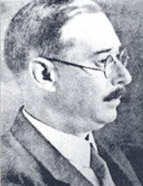

Therefore, by de-objectifying the previous object, he broadened various analytical fields and qualitatively differentiated them since 1916. In 1943, he re-evaluated the scope of the ‘history of Portuguese philosophy’: ‘In the current phase of studies on the history of scientific and philosophical thought in Portugal, above all, it is necessary to clarify the problems of a precise and limited object’, projecting the enlightening synthesis when the insurmountable illness would not allow it to be realised, having already completed several panels ( ‘ Desenvolvimento da Filosofia em Portugal na Idade Média ’ [ The Development of Philosophy in Portugal in the Middle Ages] , 1927; ‘ O pensamento português da Idade Média e do Renascimento [Portuguese thought in the Middle Ages and the Renaissance] ’, 1943; ‘ Evolução da historiografia filosófica em Portugal [Evolution of philosophical historiography in Portugal] ’, 1946).
However, Husserl ’ s mediation in the 1940s paved the way for the phenomenology of being; clarified by the phenomenological investigation of values (Scheler), a lesson that Sílvio Lima took further; but the groove still belongs to the master. The debate between the two on the psychological content of saudade will be exemplary in this respect: the awareness of being in the world and the reflection on Pascoais emphasised the reading of the ‘Portuguese soul’, a modality of ‘metaphysical explanation of the reality that is lived’ ( Idem , V, p.115).
4. As a corollary, in the most relevant framework of the historiographical episteme, cultural studies would only make sense in a hermeneutic grid rationally crossed with the history of philosophy, not from the ‘proto-historical’ phase (Brucker, Degerando), but from the critical pendulum (Zeller, Kuno Fisher, Fouillée, Windelband, Höffding, Brunschvicg, Bréhier), focussed on Hegel (and H. Ritter) as the authentic philosophical problem, a historicization that intends to be philosophical , testifying in historicity to the ‘categorical condition of thought’ (‘Hegel e o conceito de História da Filosofia [Hegel and the concept of History of Philosophy] ’, Idem , II, pp. 457-67), the apex at which ‘thought thinks itself in an objective form’ and conceptualises itself ‘in a distinct form’ ( Idem , I, p. 43). He remains an admirer ( admiration is the mother of knowledge , to quote Aristotle, Idem , III, p.381) of the rational ‘German genius – the Weimar genius, of course’, he notes in ‘49, ‘ without which culture cannot reach depth and full interiorisation ’ ( Idem , II, p.349).
This work is financed by national funds through FCT - Foundation for Science and Technology, I.P, in the scope of the projects UIDB/04311/2020 and UIDP/04311/2020.
